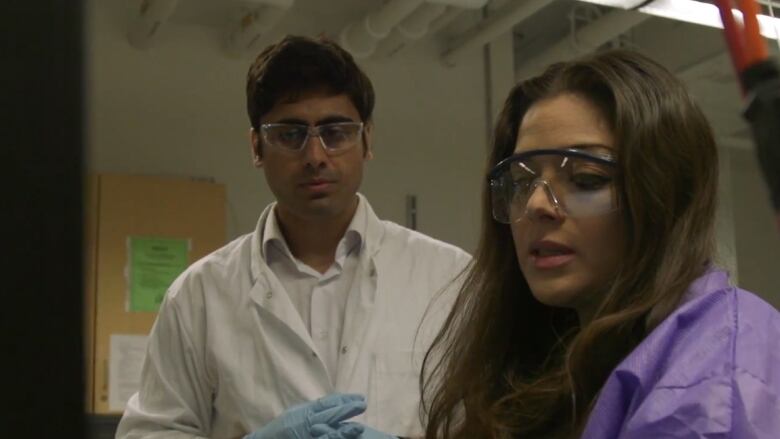UBC researchers develop $15 pot breathalyzer
Device can detect level of pot and alcohol impairment

Researchers at the University of British Columbia's Okanagan campus have developed a"pot breathalyzer" a handheld device similar to those used to detect alcohol.
"The sensor is very light. It's less than 10 grams. It's low-powered. It's portable. The signal is transferred to the blue tooth to asmart phone oriPhoneand it gives you the result of any gasses that you are interested in," saidUBC engineering professor MinaHoorfar.
Hoorfaris one of several researchersracing to develop a roadside breathalyzer to detect whether drivers are impaired by the drug in light of increasingly relaxed marijuana laws inCanada and the U.S.
- Drug-impaired driving: Complex challenges mayaccompany legalization of marijuana
- Pot breathalyzer being developed by Vancouver company
- Washington pot law measuresnanogramsto catch impaired drivers
The legalization, regulation and taxation of marijuana in several U.S. stateshasalready revealed a number of challenges for law enforcement and safety advocates as they confront a surge in drivers who've smoked up, opening up a potentially lucrative markets formanufacturersto step into.
On Wednesday,Health Minister Jane Philpott announced at a special United Nations session on drugs that legislation to begin the process of legalizing and regulating pot in Canadawill be introduced next spring.
Vancouver-basedCannabix Technologies, founded by a retired RCMP officer, is also developinga pot breathalyzer, as isColorado-basedLifeloc Technologiesand a chemistry professor-PhD student duo at Washington State University.
Cannabix Technologies president and former RCMP officer Kal Malhi says his company has raised millions of dollars to bring its marijuana breathalyzer to market.
ButHoorfarsays her device is different because of its level of sensitivity and price. She says it only costs $15 to manufacture, and it can also detect alcohol and other drugs.
Hoorfar thinks the device could be used by law enforcement agencies, as well asby pot users who want to check how impaired they are before getting behind the wheel.
"They can buy it.They have itin their hand. If they are under the influence, they know about it," Hoorfar said."So they won't sit behind the wheel and they won't drive."
She'slooking for investors and says the device could be on the market some time next year.
With files from Brady Strachan,Thomson Reuters and The Canadian Press












_(720p).jpg)


 OFFICIAL HD MUSIC VIDEO.jpg)
.jpg)



























































































